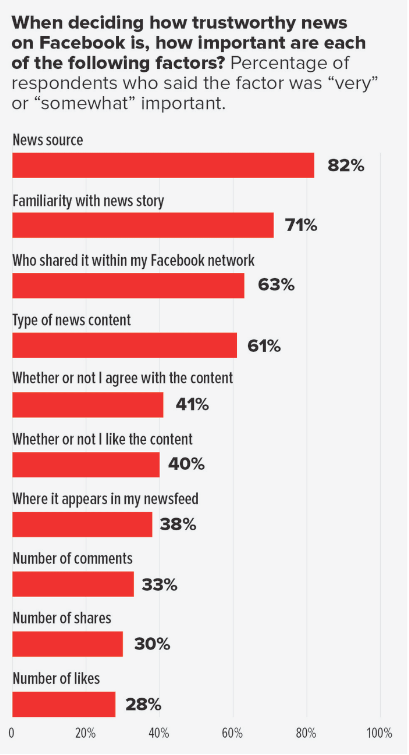A lot of people get their news on Facebook — but a lot of people don’t believe the news they read on Facebook.
That’s according to a new survey from BuzzFeed and Ipsos Public Affairs, who quizzed 3,000 American adults on their views about Facebook and the news. The results were not pretty. Over half of those who took the survey said they trust the news they read on Facebook “only a little” or “not at all.”
Part of the blame for the trust problem on Facebook, it seems, lies with Facebook itself. It turns out that all the haranguing about fake news among media observers has spread to the general population: 42 percent of people said that they don’t trust news on the platform because Facebook hasn’t done a good job of curbing fake news on its platform.
Facebook is, of course, trying to turn things around. While Mark Zuckerberg initially dismissed the claims that fake news helped sway the 2016 presidential election, the company has since started to take the issue more seriously. In February, Zuckerberg penned a 6,500-word manifesto in which he acknowledged that Facebook still has “more work to do” when it comes to stemming the rise of hoaxes on the platform.
It’s taken this on on a few fronts. In December, alongside a new feature that lets users report updates they believe are fake, Facebook also announced partnerships with the likes of ABC News, Snopes, PolitiFact, FactCheck.org, and AP to fact-check stories. Facebook has also more recently started to offer users tips on how to spot fake news in their News Feeds.

As BuzzFeed points out, those responses contrast with a recent study from the Media Insight Project, which found that who shared a story mattered more than which news source produced it. The Media Insight Project study measured people’s behavior directly through an experiment; the BuzzFeed survey asked people to self-report their beliefs, which can obviously produce different outcomes.